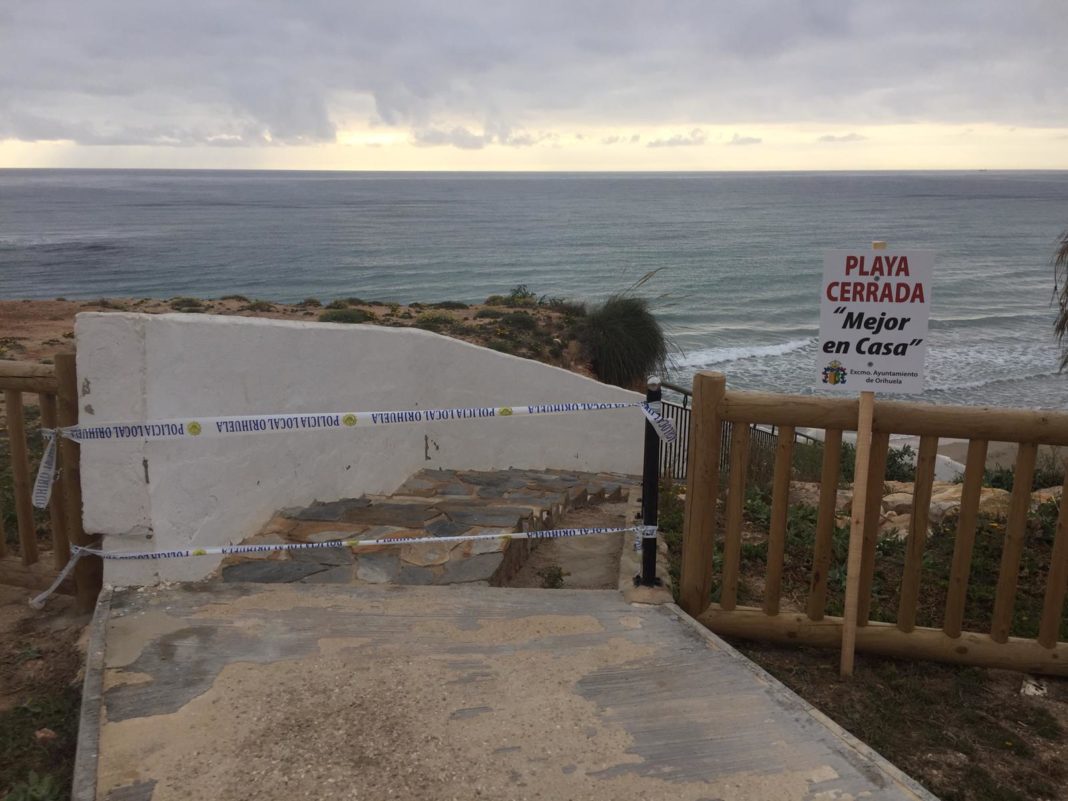- Spain, closed by decree to prevent the collapse of the health system
The National Council of Ministers approved, for the second time in 40 years, the declaration of a State of Emergency in Spain. On the previous occasion, in 2010, it was as a result of industrial action by air traffic controllers. On this occasion, the measures are designed to stop the spread of the coronavirus and prevent a collapse of the National Health system
The decree has unprecedented consequences for all Spaniards, and for those of us who live in Sapin, who will see their movements limited and their social and work routines dramatically changed. The COVID-19 pandemic has already caused 196 deaths and almost 6,400 confirmed cases.
One of the most recent is the Prime Minister’s wife, Doña Begoña Gómez who was tested in the Moncloa Palace, the official residence and workplace of the Prime Minister. She tested positive along with two PSOE ministers, Territorial Policy and Public Function Minister, Carolina Darias, and of Equality Minister, Irene Montero.
Montero’s husband is Pablo Iglesias, the Podemos leader and Deputy Prime Minister, and who was also in quarantine, although leaving it on Saturday to join Sanchez for the Council of Ministers.
The Prime Minister appeared on television on Saturday night to explain the measures that the government had taken.
He announced that from Monday at 8:00 am free movement of the public throughout Spain will be withdrawn as another measure aimed at stopping the spread of the coronavirus. Movement will only be allowed in certain specific cases which includes the acquisition of food, pharmaceuticals and basic necessities.
They were listed as follows:
- Visits to supermarkets, chemists and in order to obtain and essential items.
- Visits to Medical Centres and Hospitals
- Travel to and from work
- Return journeys to home
- Provision of welfare for seniors, minors, dependents, the disabled and any other vulnerable groups.
- Journeys to banks.
- For reasons of absolute necessity.
- Any other journey that they can justify to the authorities.
Sanchez also said that in order to stop people from traveling, the department of Transport will have the authority to close motorways for reasons of public health, safety or movement of traffic.
The latest information supplied by the Ministry of Health put the number of people in Spain infected by the coronavirus at 7,753, with almost 300 deaths. A total of 272 are critical while 517 people have been cured and released from hospital.
The move virtually mirrors the steps taken by the Prime Minister of Italy last week. The law also guarantees the continuity of all basic supplies, including “the supply of foodstuffs” and the “operation of services at centres of production,” allowing for the distribution of produce to stores and supermarkets.
The Prime Minister explained that all these initiatives have a single objective: to ensure that the number of people infected by this virus does not continue to grow sharply, but “in a slower way” so that the hospital system does not collapse.
Sánchez warned that there will be “very difficult weeks” involving “enormous efforts and sacrifices”
“But this is a battle that we are going to win, about which there is no discussion. The important thing is what price we will pay for that victory. How many more lives we save, how much more sickness and more days of illness do we avoid,” he stressed.
The royal decree states that the ministers of Health, Defence, the Interior and Transport will have the authority to act and issue orders throughout the country under the direction of Sánchez for as long as the state of emergency continues, in principle for the next 15 days.
Meanwhile the Spanish Press have been particularly critical of residents of Madrid, which has over 2000 with the virus and was put on virtual lockdown early last week. Many have second homes on the Costas and, despite advice from the Prime Minister and the Spanish Health authorities, deserted their residences in the Capital and headed for the Costa Blanca, Mar Menor and Costa del Sol.
According to ABC news, one of them is the ex-prime minister Jose Aznar, who was seen arriving to his home in the exclusive San Pedro neighbourhood of Marbella with his wife and the former Madrid mayor Ana Botello.
On Friday afternoon the motorways leaving Madrid saw four kilometres of traffic jams on the A-4, heading towards Andalucia while the M-40 towards Valencia and the Costa Blanca saw tailbacks of at least two kilometres, according to the General Directorate of Traffic (DGT).
However, with all beaches, parks and gardens also closed to the public, their exodus to the Costa’s might not bring many of the benefits they were expecting.





